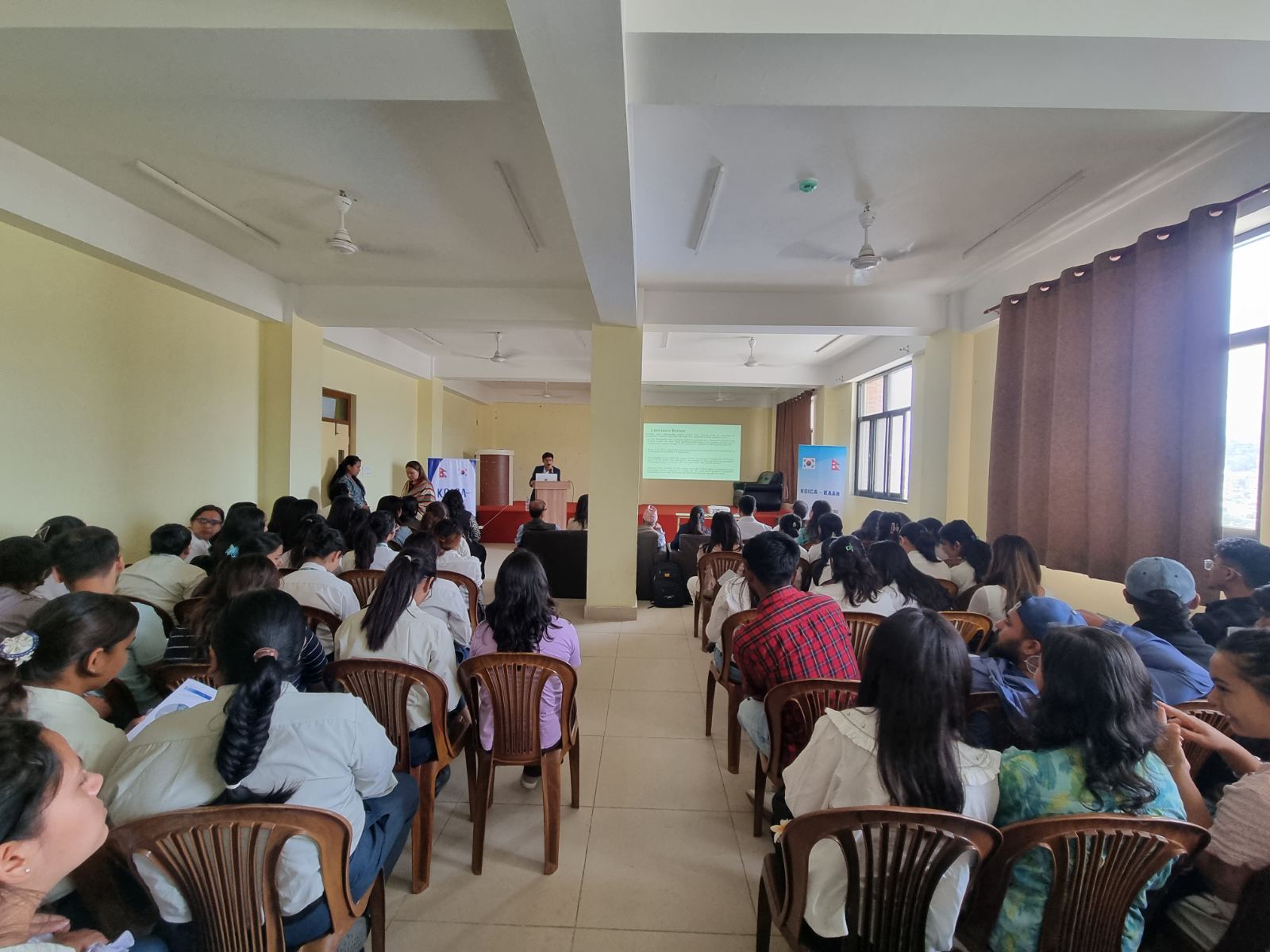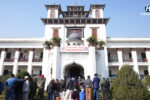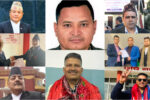KATHMANDU: The Korea Intemational Cooperation Agency (KOICA) and the KOICA Alumni Association of Nepal (KAAN) concluded the 2024 KOICA-KAAN Knowledge Sharing Program, organized in collaboration with Nepal Law Campus, Pradarshani Marg, Kathmandu Model College, Bagbazar, and Himalayan College of Science and Technology, Kirtipur.
The program’s main goal was to facilitate the exchange of experiences and knowledge from KOICA’s Master’s Scholarship program.
Two recent Master’s graduates, Daya Muni Bajracharya of Kyungpook National University and Janardan Gautam of Seoul National University, presented their research to more than 300 students pursuing Bachelor’s and Master’s degrees in disciplines such as Business Studies, Humanities, Social Sciences, Law, and Agriculture.
A key highlight was Mr. Janardan Gautam’s presentation of his thesis, titled “Analyzing User Satisfaction in E-Government Practices in Nepal: A Study on the Effects of E-Service Quality of the ‘Nagarik App’on User Satisfaction.”
His research delved into user satisfaction with Nepal’s govemment-launched Nagarik App, while also drawing comparisons between historical and political revolutions in South Korea and Nepal.
The presentation, held at Kathmandu Model College and Nepal Law Campus, sparked an engaging discussion with students and faculty.
Similarly, Daya Muni Bajracharya presented his research on “The Impact of Import Price on Producer’s Price of Rice in Nepal Using Nonlinear ARDL Model,” at the Himalayan College of Science and Technology.
His presentation detailed the effect of import prices on rice producers in Nepal, utilizing the Nonlinear Autoregressive DistributedLag (ARDL) model, and included an in-depth explanation of his research methodology, dala analysis, and key findings.
The event provided participants with a rich learning experience, combining theoretical and practical knowledge.
Attendees were introduced to advanced research techniques and econometric models, particularly focusing on the economic impact on agricultural prices.
The discussions on import price dynamics offered valuable insights for policymakers, economists, and agricultural stakeholders.
Additionally, the program fostered networking among students, alumni, and professionals, creating opportunities for future collaboration and career development.
KOICA’s Capacity Improvement and Advancement for Tomorrow (CIAT) program’ which began in 1995, remains a crucial element in human resource development.
Through short-term training and Master’s Degree Scholarship programs, CIAT emphasizes sharing Korea’s developmental expertise and technology.
Each year, more than 100 govefilment officials participate in short-term training, and approximately 15 are awarded Master’s degree scholarships.
In 2024, as many as 10 government officials were selected for KOICA s Master’s Degree Scholarship Program at various Korean universities.
To date, over 2200 govemment officials have benefited from KOICA s training programs.









Comment